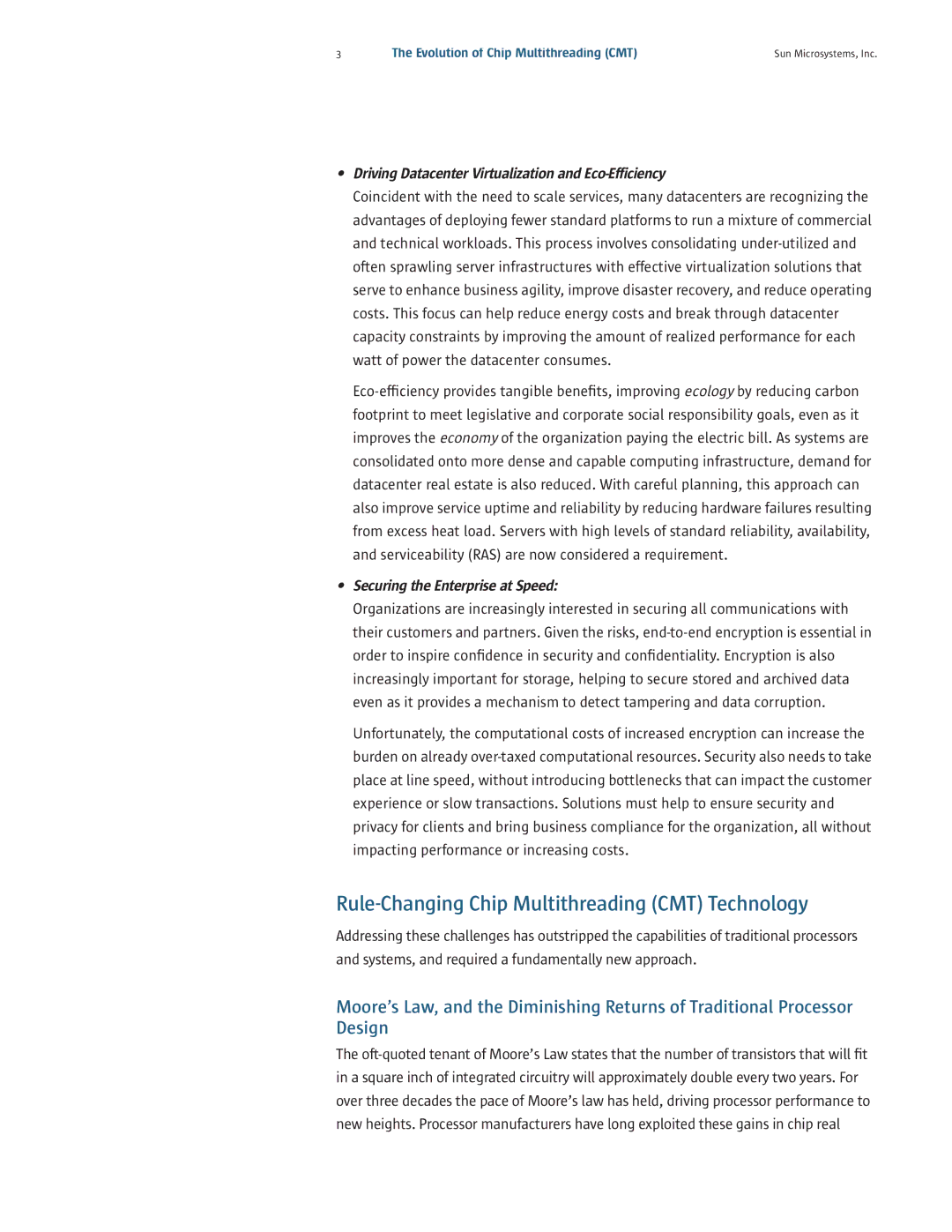3 | The Evolution of Chip Multithreading (CMT) | Sun Microsystems, Inc. |
•Driving Datacenter Virtualization and Eco-Efficiency
Coincident with the need to scale services, many datacenters are recognizing the advantages of deploying fewer standard platforms to run a mixture of commercial and technical workloads. This process involves consolidating under-utilized and often sprawling server infrastructures with effective virtualization solutions that serve to enhance business agility, improve disaster recovery, and reduce operating costs. This focus can help reduce energy costs and break through datacenter capacity constraints by improving the amount of realized performance for each watt of power the datacenter consumes.
Eco-efficiency provides tangible benefits, improving ecology by reducing carbon footprint to meet legislative and corporate social responsibility goals, even as it improves the economy of the organization paying the electric bill. As systems are consolidated onto more dense and capable computing infrastructure, demand for datacenter real estate is also reduced. With careful planning, this approach can also improve service uptime and reliability by reducing hardware failures resulting from excess heat load. Servers with high levels of standard reliability, availability, and serviceability (RAS) are now considered a requirement.
•Securing the Enterprise at Speed:
Organizations are increasingly interested in securing all communications with their customers and partners. Given the risks, end-to-end encryption is essential in order to inspire confidence in security and confidentiality. Encryption is also increasingly important for storage, helping to secure stored and archived data even as it provides a mechanism to detect tampering and data corruption.
Unfortunately, the computational costs of increased encryption can increase the burden on already over-taxed computational resources. Security also needs to take place at line speed, without introducing bottlenecks that can impact the customer experience or slow transactions. Solutions must help to ensure security and privacy for clients and bring business compliance for the organization, all without impacting performance or increasing costs.
Rule-Changing Chip Multithreading (CMT) Technology
Addressing these challenges has outstripped the capabilities of traditional processors
and systems, and required a fundamentally new approach.
Moore’s Law, and the Diminishing Returns of Traditional Processor
Design
The oft-quoted tenant of Moore’s Law states that the number of transistors that will fit in a square inch of integrated circuitry will approximately double every two years. For over three decades the pace of Moore’s law has held, driving processor performance to new heights. Processor manufacturers have long exploited these gains in chip real
